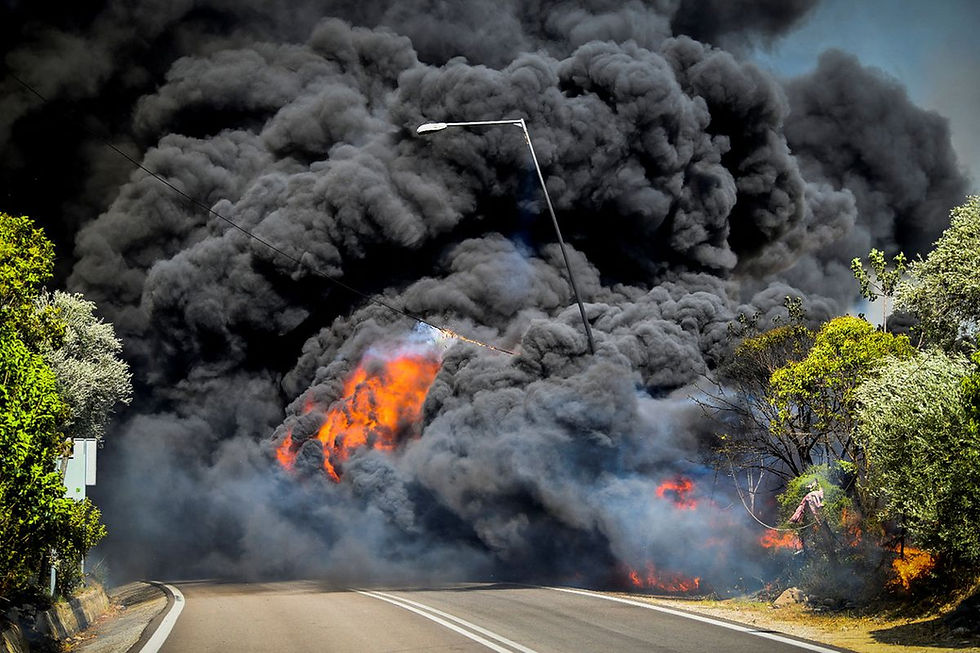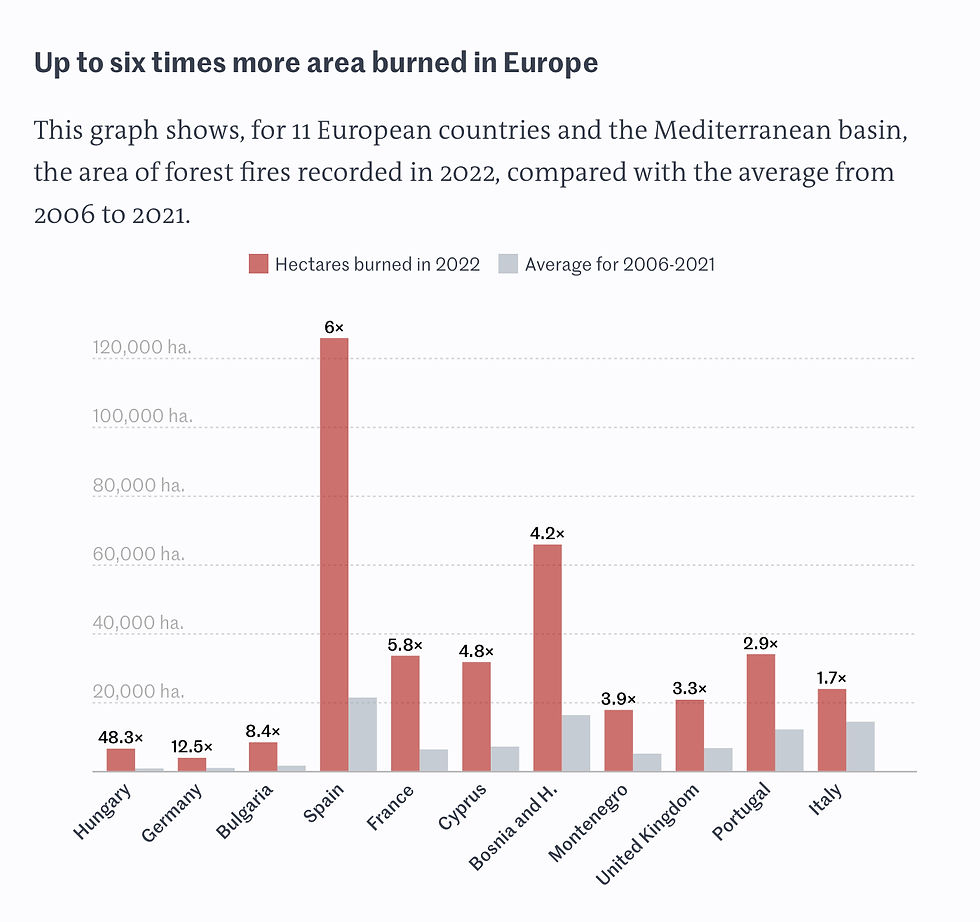On Europe’s Wildfires
- Eirini Sampson

- Aug 8, 2022
- 3 min read

If you had to evacuate your neighbourhood and abandon your house without knowing if you will find your room as it was again, what would you take with you? A photo album? Your valuable belongings? Knowing that you might have to do this because you live in a vulnerable area, would you have already packed a bag preemptively?
These are decisions that hundreds of people across Greece have to make every summer as a result of the wildfires that are destroying the Greek ecosystems and displacing people. Feels quite surreal to think that as a result of climate change in the 2020s, Greeks are living in a utopian example of what the whole world will come to experience in the coming years if we do not mitigate climate change. On 23 July 2018, the second deadliest wildfire of the 21st century took place in Mati, Greece, where 103 people were confirmed dead, with shocking footage showing people running to the sea to seek refuge from the burning lands.
Last year, wildfires ravaged about 300,000 acres of forest and bushland across Greece during the country's worst heatwave in 30 years. A year on, even after the flames have died down and the impacts of the current wildfires are unravelling, the impact of the catastrophes on peoples’ livelihoods will be felt for a generation. As a result of last year’s fires, Evia’s pine honey producers will be able to get honey again in 30 years when pine trees prosper again. This is representative of the impact of the wildfires on tourism and agriculture in the areas affected by the fires, which are now being rapidly abandoned for urban regions as people no longer have anything to tie them to their lands, as they lost everything to the flames. Since the beginning of the fire season on May 1, official said that they have recorded nearly 2,500 wildfires in Greece.
This is not isolated from the rest of Europe, as the current heat wave leading to temperatures above 40 degrees Celsius has spread across European countries. This is resulting in the spread of wildfires across Europe due to the combination of heatwaves and droughts making it hard to combat the flames. Last week, the European Forest Fire Information System said 19 countries were in extreme danger from the wildfires, while Spain, Portugal and France were at very extreme danger. Wildfires have ranged from Greece, Portugal, Spain, Italy, Turkey and France.

Most of the fires are ignited by human activities such as arson or negligence. As a result of climate change, hot and dry conditions help fires spread faster, while the moisture is sapped from vegetation. This in combination with the above human element creates the most ideal conditions for wildfires to spread.

Despite the humility that such a situation may induce in people, many chose their prized possessions over their ‘forever friends’ - their pets, where during the wildfires hundreds of cats and dogs were left to perish in the fires. In addition to this, the fires have disrupted the journey of several migrant birds who travel through Europe to reach their destinations across Africa for the winter seasons. This led to hundreds of birds dropping dead in the streets of Athens, while several others were completely disoriented from the smoke and the fires. Greece and Turkey are home to unique species - ⅕ of the 36,000 species in Greece are exclusive to the country, meaning that the wildfires are threatening several of these species. In 2020, the bushfires in Australia killed what is estimated to be 480 million animals.


